Health & fitness
I’ve had a pain in my groin for six months and my friend say it could be serious. Help!
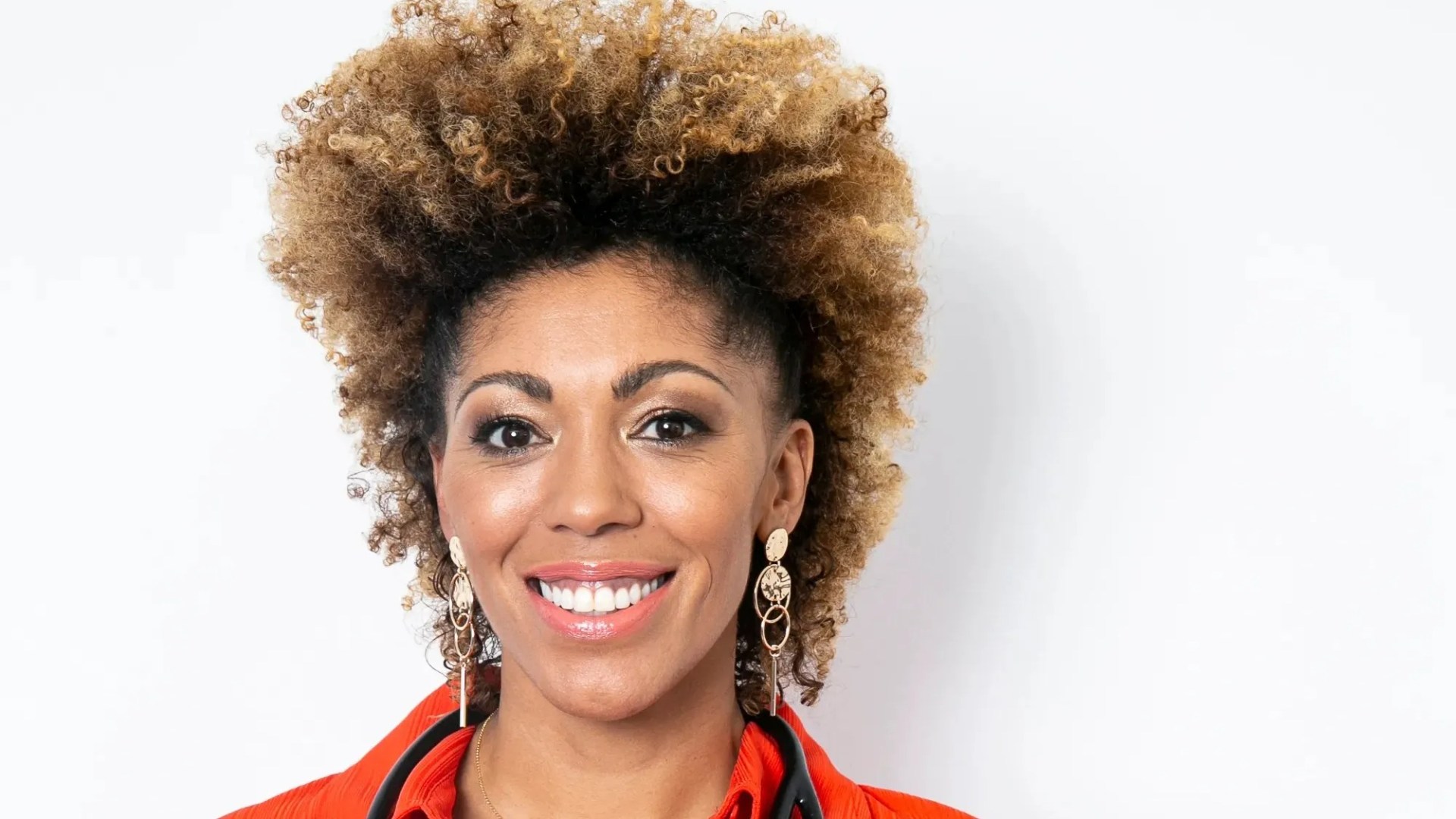
EIGHT in ten women in the UK aren’t checking their breasts regularly and a third admit they never check themselves for signs of breast cancer, research by Estée Lauder found in 2022.
This is shocking as two-thirds of cases are detected in this way.
I’m in my third year as an ambassador for its breast cancer campaign and we have been focusing on the groups that are least likely to check – including South Asian women, women under 40 and Black women.
Attending mammograms, women are invited between the ages of 50 and 71, is another way to spot breast cancer early. You can ask for mammograms after 71.
Aside from a lump in the breast, chest, collarbone or armpit, other signs to look and feel for are: changes to the skin or nipple, a rash, crusting or discharge around the nipple, or changes in size, shape or colour of the breasts.
See your GP for any changes so they can rule out cancer, or detect it as soon as possible.
Here is a selection of what readers have asked this week. . .
SON’S REAR CONDITION
Q) CAN you please tell me anything about desmin myopathy?
My 51-year-old son has this condition but we are not being told anything about it and I am worried. It is awful to see him suffer in this way.
A) Desmin is a protein that helps maintain the structure and strength of muscles.
Think of it as scaffolding that helps hold muscle fibres together, keeping them aligned and all working properly.
Desmin myopathy (also known as myofibrillar myopathy) is a rare genetic condition that causes muscle weakness, typically in the legs first.
It can slowly spread to the body, neck, face, respiratory muscles and sometimes the heart muscle, causing cardiomyopathy.
The severity and progression of symptoms can vary greatly between individuals.
While this can be a genetic disease, it is not always inherited.
Sometimes the genetic mutation is sporadic, meaning it can arise in people without a family history of the disease.
It is very difficult to watch a loved one suffer, especially with a rare condition that isn’t well understood – the first case of desmin myopathy wasn’t identified until the late Nineties.
Does he have someone to attend hospital appointments with, and share the worry with?
Sometimes when we receive a diagnosis we try to shield our loved ones from information that might upset them. Letting your son know that you want to know everything so that you can help support him may help get some honest conversations started.
Think of ways in which you can offer support in the meantime – cooking meals, supporting childcare, shopping or housework if that is relevant.
I strongly recommend asking your son to engage with specialist nurses or therapists who are part of his healthcare team as they can provide more detailed care and support.
Physiotherapy, mobility aids, and respiratory monitoring are often used to manage this condition, and psychological support can be extremely helpful.
Please don’t hesitate to contact patient groups or charities, such as Muscular Dystrophy UK. They can offer valuable information and emotional support.
Q) I AM a male, 67 years old, and for the past six months I have had pain in my left groin, particularly when walking or standing for a long time.
I have had four knee replacements on my right leg and have just finished radiotherapy for prostate cancer. I was previously very sporty. I am still playing golf regularly.
Many friends have mentioned this as a sign of needing a hip replacement.
Do you think it may be that, or could it be something else?
A) Osteoarthritis in the hip is a common cause of groin pain in men over 60 and could explain your symptoms.
For example, hip pain can sometimes worsen with walking or standing, and can even affect sleep when lying down.
The multiple knee surgeries may have chan-ged how you walk, putting extra strain on your hips, and potentially accelerating any wear and tear on the joint.
Radiotherapy itself is not linked to osteoarthritis, but the overall stress on your body from cancer treatments, such as hormonal therapy, could play a role in how you recover from or manage joint issues.
You mention having been sporty, and a lifetime of sports that involve high speeds, pivoting, kicking or high impact such as football, rugby, and running can increase the risk of hip osteoarthritis. Having said that, it is important to know that remaining active can help maintain the health of the joint now.
Furthermore, keeping the muscles strong can alleviate the pain.
In particular, lower-impact activities such as cycling, swimming and walking can be beneficial.
Being physically active has many other health benefits, so please do keep it up.
That said, the pain may not actually be coming from the hip joint at all.
Other causes should be considered, such as referred pain from the spine or pelvic region, or even lingering effects from radiotherapy.
An assessment by your GP or an orthopaedic specialist can help determine if this is a hip issue, or something else.
If surgery is a concern, non-surgical options like physiotherapy and pain management can help, and some lifestyle adjustments such as weight loss may also provide relief.
STOPPING MEDS WRECKED MY HAIR
Q) I USED to be on vitamin D and alendronic acid for osteoporosis but after about six years, my doctor advised me to stop them.
Within a few months, most of my hair (body and head) fell out and now my fingernails are so brittle. If I mention any of my worries to my doctors they make me feel like a hypochondriac.
I’m not accepting “old age” and my once thick, healthy, shiny hair and lovely nails are gone.
A) I’d be interested to know why you were told to stop taking your treatment.
Most likely it’s the alendronic acid that’s been stopped, due to side effects including heartburn, swallowing difficulty or other issues with the gullet. It may also be stopped if your kidney function goes below a certain threshold.
I would guess that the vitamin D is fine to continue and you should check if it’s OK to restart this. Vitamin D is something we should all be supplementing with from October to March anyway, and for someone with osteoporosis, I would advise supplementing all year round.
Vitamin D deficiency can affect both hair and nail health. Iron, B12, folate, zinc and magnesium deficiency should be ruled out too. If you wanted to have this assessed further and have the funds to do so, you could see a hair and scalp specialist (trichologist).
They will use a special camera to look at the hair follicles and give you bespoke advice about supplements, hair products and lifestyle to optimise your hair health.
I can understand you may feel fobbed off by your GP. It can be very difficult to give patients additional time when we are so limited if the issue is raised at the end of an appointment.
Our hair and nails do change as we age, but it should not be assumed to be all age-related, especially if there was a rapid change when you stopped taking the medication.
Health & fitness
I battled mystery headaches for ten years – doctors thought I’d had a stroke but it was something much rarer – The Sun
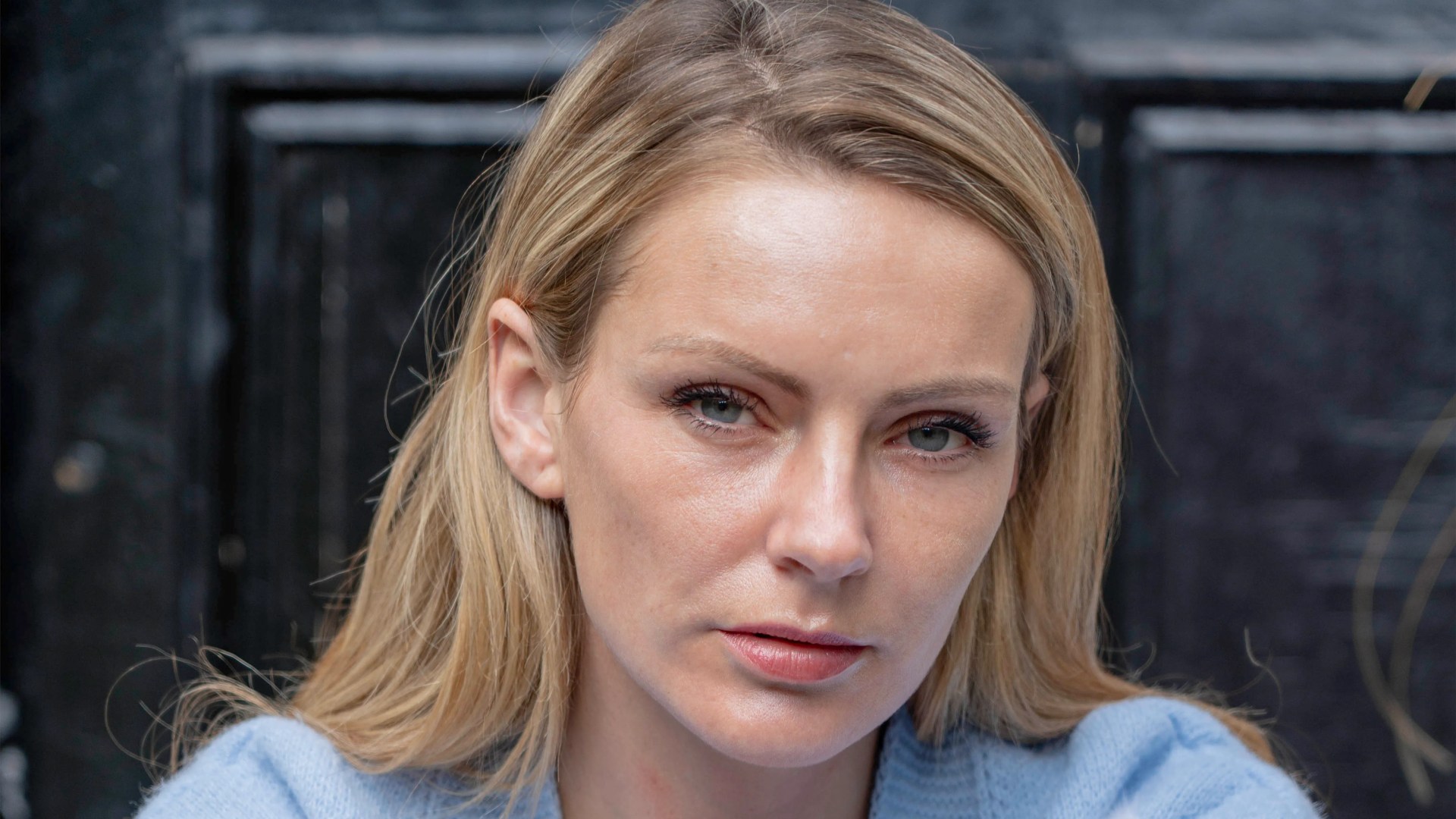
A MODEL with a rare brain condition says she fears never seeing her two kids grow up — as she tries to raise £26,000 for pioneering surgery abroad.
Deana Hendry, 32, needs specialist treatment after being told there was nothing the NHS could do to permanently fix a malformation, which makes the back of her brain sag through the base of the skull.
Deana, diagnosed in 2021 after suffering symptoms for ten years, said: “Nobody knew what was causing it but I had chronic head and neck pains.
“When it got really bad and I went to the hospital, at first they thought I’d had a stroke.
“Then I got a phone call telling me I had an incurable brain condition.”
The model, of Banbury, Oxon, was diagnosed with Arnold-Chiari malformation, which affects roughly one in 2,000.
Most have no symptoms and never even realise they have it.
There are four main types, but type 1, called Chiari I, is the most common and occurs when the lowest part of the back of the brain extends into the spinal canal.
Many cases are triggered by part of the skull not being large enough to contain the brain.
The condition is normally treated in the UK with decompression surgery, where a chunk is taken from the back of the skull to allow the brain to expand away from the spinal cord.
If left untreated it can cause early-onset dementia or put too much pressure on the spinal cord, causing disability.
Deana, mum to Bartholemew, four, and Isabella, two, said: “The fear of leaving them to look after me, and the fear of leaving them without me, is what’s making me find a way to get through it.”
She is hoping to fund trial surgery in Barcelona, Spain, to permanently stop the malformation growing.
Health & fitness
I feared menopause would make sex a chore but Kenny and I are back to daytime romps, says Gabby Logan
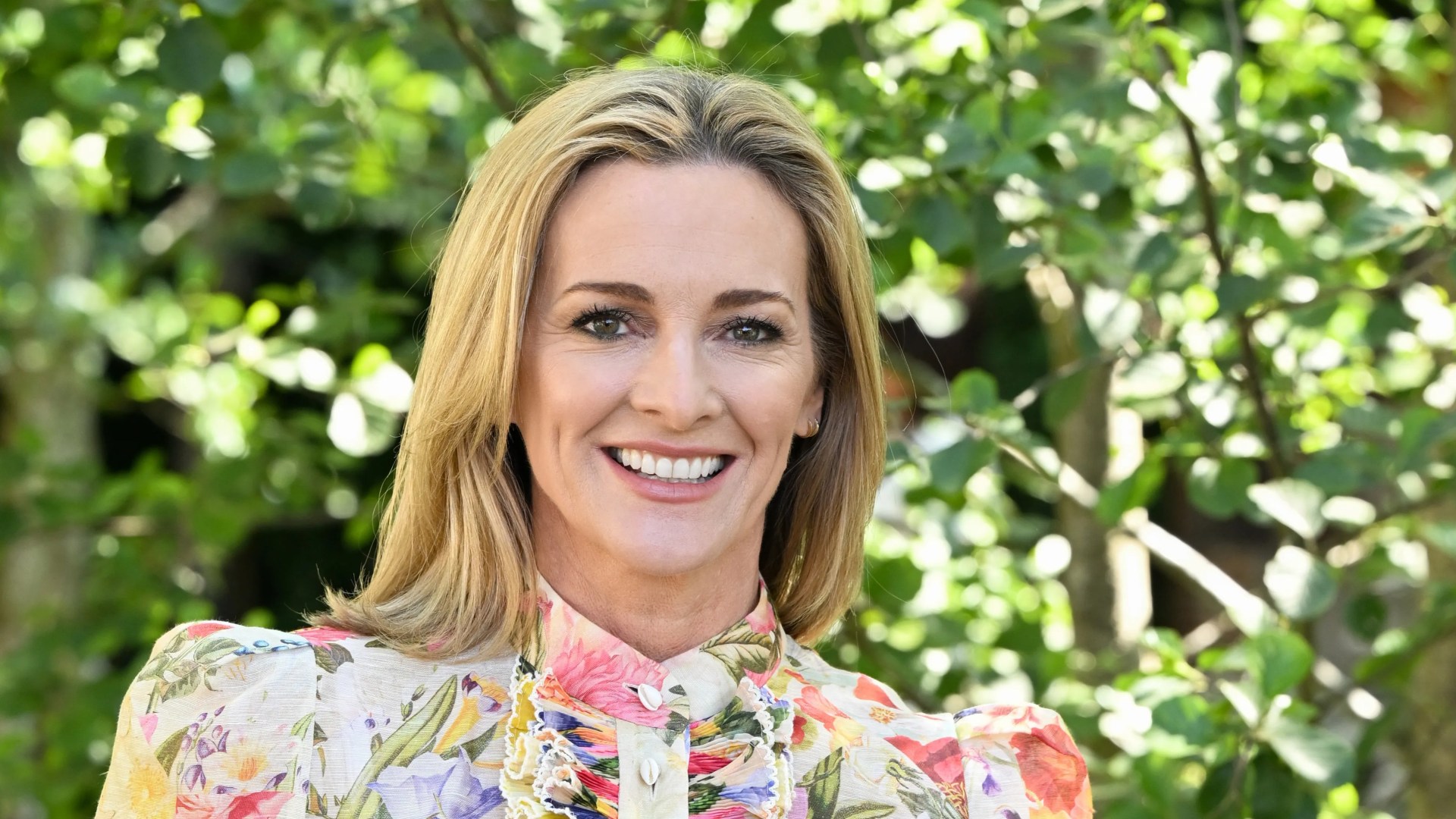
A DECADE ago the menopause was rarely spoken about, certainly not in public.
Despite the fact it affects every woman, “the change” was considered taboo and frequently suffered in silence.
Now menopause is discussed everywhere; in podcasts, documentaries, and social media, and targeted with a growing market of products including supplements and herbal remedies to help ease its symptoms.
Increased awareness – fuelled by The Sun’s Fabulous Menopause Matters campaign – has been a life-saver. But with more information available than ever, it can be difficult to know where to find accurate advice.
If you want to know the symptoms of perimenopause – the lead-up to your final period – or whether you should be avoiding certain foods or using hormone therapy, Sun Health is here to help cut through the noise.
Dr Philippa Kaye – GP and author of the new book The Science Of Menopause – answers the most common questions on the subject and BBC presenter Gabby Logan shares her own experience of it.
Gabby Logan says HRT reignited her libido after becoming so disinterested in sex with her husband she worried it would “become a duty’.
The Welsh presenter, 51, first realised she was perimenopausal at the age of 47, but didn’t recognise it as such.
Rather, Gabby says she just felt like a “lesser version of herself”.
I couldn’t think that it had anything to do with the menopause. I was only in my mid-40s
And while the mum of two credits HRT with bringing her back, she has also taken up cold swimming among other lifestyle hacks to feel good again.
Gabby, who is married to ex-Scottish international rugby Kenny Logan, tells Sun Health: “I was feeling like a lesser version of my usual self. I didn’t know what was wrong with me.
“I’ve always been into health and fitness, and I started being extra careful about what I ate and I was training more — things that normally made me feel really good — but were now having no effect.
Out of control
“I couldn’t think that it had anything to do with the menopause. I was only in my mid-40s.”
But it was only when Gabby invited broadcaster Mariella Frostrup on her podcast, The Mid Point, in 2020 that everything clicked at last.
Gabby, who has 19-year-old twins Lois and Reuben with Kenny, says: “She was talking about her menopause, describing the symptoms — anxiety, impatience, shouting at family and friends, losing your temper over silly things, feeling a bit out of control and not on top of stuff, feeling tired a lot of the time with low energy levels and having brain fog.
“I thought, ‘Hello? This sounds very familiar’.
“My libido was definitely affected by the menopause and perimenopause. I found I didn’t want to have sex with my husband as much, and it felt like something I was going to have to do even if I didn’t really want to.
“It was almost like, ‘Is this going to become a duty?’ So many women say this and I didn’t want to become one of them.
“I wanted to keep enjoying having sex. When I understood that I could get my former sex drive back, it was an enormous relief.” Gabby saw a doctor who prescribed HRT after tests revealed her hormones were “on the floor” and she likely only had a couple of periods left.
“I was surprised to hear this but not particularly emotional about it. I just wanted to feel like me again,” Gabby says.
My libido came back within about a week and our sex life was back on track — even to the extent of having daytime sex. Our kids will kill me if I say any more!
“I’d had a very healthy relationship with Kenny. I loved him and fancied him, and hadn’t been able to understand why I no longer wanted to have sex as much as I had before.
“My libido came back within about a week and our sex life was back on track — even to the extent of having daytime sex. Our kids will kill me if I say any more!”
The couple faced more challenges when Kenny was diagnosed with prostate cancer in 2022, requiring surgery.
And while Gabby admits she has felt “bereft” transitioning to an “empty nest”, she focuses on hobbies to fill the void.
She says: “I regularly go cold-water swimming.
“It’s something I kind of fell into by accident.”
It’s one of several habits that relieve her menopause symptoms.
She says: “The menopause affects our physical and mental wellbeing, things like heart health and the threat of osteoporosis. Exercise can help guard against both, particularly weight training for osteoporosis.
“Simple walking and cycling are great things to do.
“What helps me is being as holistic as I can.
“I make sure I take all the right vitamins and minerals for a woman of my age.
“It’s also a good idea to read up on the menopause before it actually happens so that it doesn’t overwhelm you.
“There’s nothing like prepping before midlife actually hits.”
Womens Workouts
Fanny S 💕: egg routine 🥚 #short #shorts #by.fannys

Instagram @fanny.scg
source
Health & fitness
From the truth about menopause sheets and PJs to the best treatments – Dr Philippa takes you back to basics
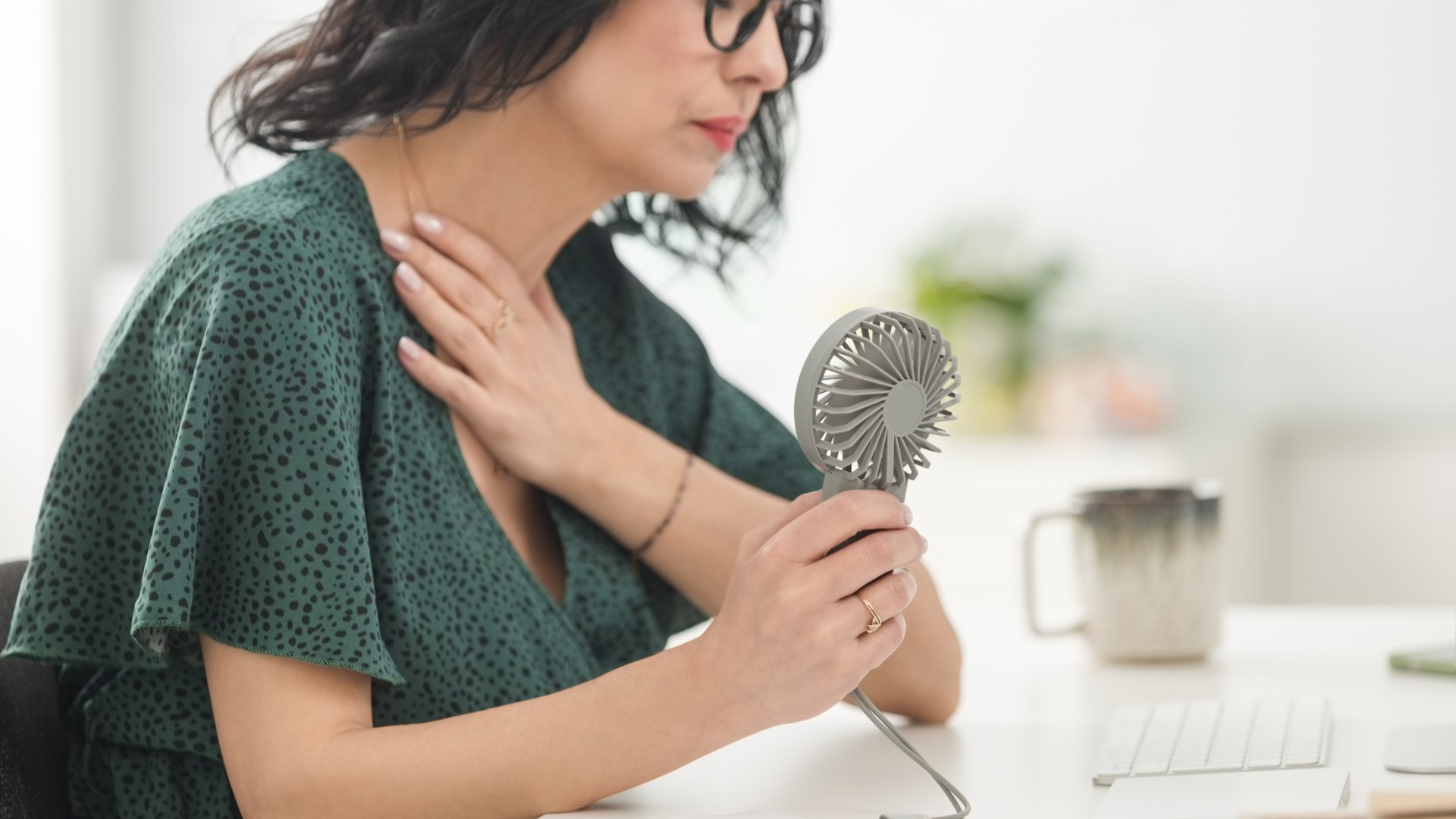
IT is about time the menopause was in the spotlight – and long may it continue to be.
Its symptoms can, for some women, span decades of their mid to late life.
You may think “hot flushes” when you hear menopause, an image of a woman getting hot and bothered and fanning herself.
But there are 34 recognised symptoms, most of which are invisible to others, including joint aches and pains, headaches, and dry, itchy skin.
The genitals and urinary tract can be affected, leading to sore, itchy, painful vulva and vagina, pain during sex and recurrent urinary tract infections.
Even less obvious are the psychological symptoms women can experience.
Low mood and depression, anxiety, “brain fog”, insomnia, fatigue and loss of libido are all symptoms commonly raised by women in menopause.
The effects can be so severe that one in ten women report having thoughts about suicide.
So you can see why it is important to keep the conversation with menopause going. Here I tackle some of the main questions:
What is menopause and why does it happen?
MENOPAUSE simply means the last period; and after you have not had a period for 12 months you have been through menopause.
Perimenopause is the time leading up to menopause, when periods become more irregular until they stop when there are no eggs left.
The hormones oestrogen and progesterone are on a downward trend but fluctuate during perimenopause until they flatline at menopause.
The average age of menopause is 51, according to research on white women, but African American and Hispanic women have menopause on average 8.5 months earlier.
Globally, the average age appears to be even younger.
You don’t need blood tests for diagnosis of menopause, but if you are under the age of 45, they are offered to rule out other causes of symptoms.
Approximately one in 20 women will have an early menopause, before the age of 45.
For some women symptoms will start up to a decade before the final period – and we can’t predict how long they will last or when their intensity will peak.
A quarter of women will have no symptoms at all, or at least, very few.
What treatments are there?
WE tell women to see their GP when their symptoms bother them and are affecting their lives. You can have treatment in perimen-opause as well as postmenopause.
GPs will offer medication to ease symptoms as appropriate, but may also discuss lifestyle changes (more on that later).
The most famous treatment is hormone replacement therapy, which does exactly what it says on the tin – it replaces the hormones that have decreased.
If you are prescribed HRT you will certainly be given oestrogen. You’ll also be given progesterone to prevent the womb lining from becoming thickened, but if your womb has been removed by hysterectomy, it is not generally needed.
Testosterone may be offered to help treat low libido.
Many women have feared HRT due to studies earlier this decade that seemed to show it increased the risk of heart attacks, breast cancer and stroke.
With the help of your doctor, you will weigh up the generally small risks
Dr Philippa Kaye
However, the women in these studies used an older version of oral HRT that we don’t use now, and they started HRT aged 63 years, on average.
This is more than a decade after the average age of menopause.
Research since then has shown that starting HRT within the first ten years doesn’t seem to have the same risks.
So let’s be clear: For the majority of women who can take HRT, starting within the first decade after menopause, is safe.
The change in risk of a stroke or heart attack depends on how and when you start taking HRT.
There is a small increased risk of breast cancer with HRT, but this is approximately the same rise as that related to smoking and drinking alcohol, and you can decrease your risk by trying to maintain a healthy weight and exercising regularly.
What’s more, other benefits of HRT should not be underestimated!
These include a decreased chance of osteoporosis, muscle loss, bowel cancer and more.
With the help of your doctor, you will weigh up the generally small risks and compare them to benefits on a case-by-case basis.
There are also non-hormonal prescribable treatment options such as cognitive behavioural therapy (CBT), which can predominantly help mental health-related symptoms.
What lifestyle changes can relieve symptoms?
AS a doctor, it is never a question of either when it comes to medication or lifestyle changes.
A healthy diet may help your symptoms. For example, cutting out caffeine and spicy food can reduce hot flushes and sweats.
Decreasing alcohol can help improve your sleep, fatigue, mood and hot flushes.
Calcium and vitamin D are vital in the diet to help protect your bones.
And foods rich in phytoestrogens (plant-based oestrogens), such as tofu and soybeans, may be helpful.
Exercise is vital at any age, but during this time it can help protect your bones, decrease symptoms such as fatigue and hot flushes, boost your mood, improve your sleep, and reduce your risk of various cancers.
Remember, it’s about looking after your mental health, too.
When it comes to menopause products, there is a huge amount on offer
Dr Philippa Kaye
Make sure you attend cancer-screening programmes for women your age, such as mammograms or smears, and do your self-checks for lumps, bumps and changes.
When it comes to menopause products, there is a huge amount on offer – everything from “speciality” chocolate to pyjamas, face creams and supplements.
When we don’t feel at our best we are vulnerable. After all, wouldn’t it be nice if a set of sheets might be the answer to our symptoms?
While these products may help some people, there is no evidence for effectiveness of many of them.
An expensive face cream or shampoo labelled “for menopause” may well contain similar ingredients to a cheaper one.
The way through is to get empowered and informed so that you can make evidence-based decisions about your health, which is why I wrote the book!
- The Science Of Menopause by Dr Philippa Kaye, out now (published by DK, £16.99).
Womens Workouts
30 MIN HIIT CARDIO Workout – ALL STANDING – Full Body, No Equipment, No Repeats

Get your body moving with this 30 MIN INTENSE & FUN HIIT Workout! Burn calories, sweat 💦 and have fun with all standing, no repeat exercises that you can do anywhere! It’s just YOU vs YOU Team! Are you ready to crush it? Let’s do it!
▸ Muscles Worked: Full Body Cardio & Toning
▸ Time: 30 Min
▸ Equipment: Bodyweight Only
♥︎ Workout ♥︎
▸ 00:00 – 04:20 Warm Up: 30 sec on, 0 sec off
Warm Up Hops
Sumo Squat + Reach
Sumo Side Step
Alternating Calf raises
Side Step Jacks
Squat + Knee Tap
Side to Side Squats
Big Arm Circles
▸ 04:20 – 20:25 Workout Round 1: 50 sec on, 10 sec off
Jumping Jack + Punch
Step Back + Kick Right
Step Back + Kick Left
Skaters
Sumo In Out Jumps
Front Back Hops
Invisible Rope Jumps
Alternating Punch Up Jacks
Alternating Slams
Squat + Crunch
High Knees
Punch Up Jacks
Slams
Side Squat + Knee Tap Right
Side Squat + Knee Tap Left
Rainbow Thrusters
▸ 20:25 – 30:35 Workout Round 2: 50 sec on, 10 sec off
Butt Kicks
Knee Tap High Knees
Front Back Lunge Right
Front Back Lunge Left
Side to Side Split Jumps
Surfer Hops
Squat + Punch
Punches
Squat + Clap Jacks
Jumping Jack + Tuck Jump
▸ 30:35 – 34:20 Cool Down 30 sec on, 10 sec off
Inhale Exhale
Standing Calf Stretch Right
Standing Calf Stretch Left
Forward Fold
Upper Body Stretch
Please remember that we are all different and that you can make this your own workout ♡ Take a longer break when you need to.
♡ Join the OFFICIAL TEAM GROW Community Group: https://www.facebook.com/groups/teamgrowsupport/
♡ Workout Challenges & Guides: http://growwithanna-shop.com
♡ The Gear I Use:
Camera: https://amzn.to/3aticKD
Lens: https://amzn.to/3cCiujR
Tripod: https://amzn.to/2zontX9
Microphone: https://amzn.to/34VaKXH
♡ SUBSCRIBE: http://bit.ly/2QLvpXn
♡ Instagram: http://bit.ly/2ZSdHFR
♡ Facebook: http://bit.ly/2SVkgpE
♡ My Music: https://www.epidemicsound.com
#growingannanas #growwithanna #homeworkouts #hiitworkout #cardiohiit #homeworkout
D I S C L A I M E R
If you are a newbie start with a simple and easy exercise before attempting all advanced exercises. Performing exercises out of your capability might strain your muscles and you may get injured.
This channel offers health, fitness and nutritional information. You should not rely on this information as a substitute for, nor does it replace, professional medical advice, diagnosis, or treatment. By performing any fitness exercises without supervision like with this video, you are performing them at your own risk. See a fitness professional to give you advice on your exercise form. Growingannanas will not be responsible or liable for any injury or harm you sustain as a result of this video.
source
Womens Workouts
Day 9/14 💕 Mary Braun‘s AB Workout #motivation #weightloss #workoutshorts
-

 Science & Environment4 weeks ago
Science & Environment4 weeks agoHyperelastic gel is one of the stretchiest materials known to science
-

 Technology4 weeks ago
Technology4 weeks agoWould-be reality TV contestants ‘not looking real’
-

 Science & Environment4 weeks ago
Science & Environment4 weeks agoHow to unsnarl a tangle of threads, according to physics
-

 Science & Environment4 weeks ago
Science & Environment4 weeks ago‘Running of the bulls’ festival crowds move like charged particles
-

 Science & Environment4 weeks ago
Science & Environment4 weeks agoMaxwell’s demon charges quantum batteries inside of a quantum computer
-

 Science & Environment4 weeks ago
Science & Environment4 weeks agoLiquid crystals could improve quantum communication devices
-

 Womens Workouts3 weeks ago
Womens Workouts3 weeks ago3 Day Full Body Women’s Dumbbell Only Workout
-

 Science & Environment4 weeks ago
Science & Environment4 weeks agoQuantum ‘supersolid’ matter stirred using magnets
-

 Technology3 weeks ago
Technology3 weeks agoIs sharing your smartphone PIN part of a healthy relationship?
-

 Science & Environment3 weeks ago
Science & Environment3 weeks agoX-rays reveal half-billion-year-old insect ancestor
-

 Science & Environment4 weeks ago
Science & Environment4 weeks agoWhy this is a golden age for life to thrive across the universe
-

 Science & Environment4 weeks ago
Science & Environment4 weeks agoSunlight-trapping device can generate temperatures over 1000°C
-

 Science & Environment4 weeks ago
Science & Environment4 weeks agoNerve fibres in the brain could generate quantum entanglement
-

 Science & Environment4 weeks ago
Science & Environment4 weeks agoQuantum forces used to automatically assemble tiny device
-

 Science & Environment4 weeks ago
Science & Environment4 weeks agoHow to wrap your mind around the real multiverse
-

 Science & Environment4 weeks ago
Science & Environment4 weeks agoITER: Is the world’s biggest fusion experiment dead after new delay to 2035?
-
News4 weeks ago
the pick of new debut fiction
-

 Science & Environment4 weeks ago
Science & Environment4 weeks agoA slight curve helps rocks make the biggest splash
-

 News3 weeks ago
News3 weeks agoOur millionaire neighbour blocks us from using public footpath & screams at us in street.. it’s like living in a WARZONE – WordupNews
-

 Science & Environment4 weeks ago
Science & Environment4 weeks agoLaser helps turn an electron into a coil of mass and charge
-

 Science & Environment4 weeks ago
Science & Environment4 weeks agoPhysicists are grappling with their own reproducibility crisis
-

 Science & Environment4 weeks ago
Science & Environment4 weeks agoNuclear fusion experiment overcomes two key operating hurdles
-

 News4 weeks ago
News4 weeks ago▶️ Hamas in the West Bank: Rising Support and Deadly Attacks You Might Not Know About
-

 Science & Environment4 weeks ago
Science & Environment4 weeks agoTime travel sci-fi novel is a rip-roaringly good thought experiment
-
Business2 weeks ago
Eurosceptic Andrej Babiš eyes return to power in Czech Republic
-

 News4 weeks ago
News4 weeks agoYou’re a Hypocrite, And So Am I
-

 Sport4 weeks ago
Sport4 weeks agoJoshua vs Dubois: Chris Eubank Jr says ‘AJ’ could beat Tyson Fury and any other heavyweight in the world
-

 News4 weeks ago
News4 weeks ago▶️ Media Bias: How They Spin Attack on Hezbollah and Ignore the Reality
-

 Science & Environment4 weeks ago
Science & Environment4 weeks agoCaroline Ellison aims to duck prison sentence for role in FTX collapse
-

 News4 weeks ago
News4 weeks agoNew investigation ordered into ‘doorstep murder’ of Alistair Wilson
-

 Science & Environment4 weeks ago
Science & Environment4 weeks agoA new kind of experiment at the Large Hadron Collider could unravel quantum reality
-

 Technology2 weeks ago
Technology2 weeks agoQuantum computers may work better when they ignore causality
-
Business2 weeks ago
Should London’s tax exiles head for Spain, Italy . . . or Wales?
-

 Football2 weeks ago
Football2 weeks agoFootball Focus: Martin Keown on Liverpool’s Alisson Becker
-

 Sport2 weeks ago
Sport2 weeks agoWatch UFC star deliver ‘one of the most brutal knockouts ever’ that left opponent laid spark out on the canvas
-

 Science & Environment4 weeks ago
Science & Environment4 weeks agoRethinking space and time could let us do away with dark matter
-
News4 weeks ago
The Project Censored Newsletter – May 2024
-

 Technology2 weeks ago
Technology2 weeks ago‘From a toaster to a server’: UK startup promises 5x ‘speed up without changing a line of code’ as it plans to take on Nvidia, AMD in the generative AI battlefield
-

 MMA2 weeks ago
MMA2 weeks agoConor McGregor challenges ‘woeful’ Belal Muhammad, tells Ilia Topuria it’s ‘on sight’
-

 Technology3 weeks ago
Technology3 weeks agoWhy Machines Learn: A clever primer makes sense of what makes AI possible
-

 News4 weeks ago
News4 weeks agoIsrael strikes Lebanese targets as Hizbollah chief warns of ‘red lines’ crossed
-

 Health & fitness4 weeks ago
Health & fitness4 weeks agoThe secret to a six pack – and how to keep your washboard abs in 2022
-

 Technology4 weeks ago
Technology4 weeks agoThe ‘superfood’ taking over fields in northern India
-

 Science & Environment4 weeks ago
Science & Environment4 weeks agoA tale of two mysteries: ghostly neutrinos and the proton decay puzzle
-

 Science & Environment4 weeks ago
Science & Environment4 weeks agoFuture of fusion: How the UK’s JET reactor paved the way for ITER
-

 Technology3 weeks ago
Technology3 weeks agoGet ready for Meta Connect
-

 Technology2 weeks ago
Technology2 weeks agoMicrophone made of atom-thick graphene could be used in smartphones
-
Business2 weeks ago
Ukraine faces its darkest hour
-

 Science & Environment4 weeks ago
Science & Environment4 weeks agoUK spurns European invitation to join ITER nuclear fusion project
-
Politics4 weeks ago
UK consumer confidence falls sharply amid fears of ‘painful’ budget | Economics
-

 TV3 weeks ago
TV3 weeks agoCNN TÜRK – 🔴 Canlı Yayın ᴴᴰ – Canlı TV izle
-

 News3 weeks ago
News3 weeks agoWhy Is Everyone Excited About These Smart Insoles?
-

 Health & fitness2 weeks ago
Health & fitness2 weeks agoThe 7 lifestyle habits you can stop now for a slimmer face by next week
-

 Technology2 weeks ago
Technology2 weeks agoUniversity examiners fail to spot ChatGPT answers in real-world test
-

 Science & Environment4 weeks ago
Science & Environment4 weeks agoPhysicists have worked out how to melt any material
-

 Sport4 weeks ago
Sport4 weeks agoUFC Edmonton fight card revealed, including Brandon Moreno vs. Amir Albazi headliner
-

 News4 weeks ago
News4 weeks agoHow FedEx CEO Raj Subramaniam Is Adapting to a Post-Pandemic Economy
-

 Science & Environment4 weeks ago
Science & Environment4 weeks agoWhy we need to invoke philosophy to judge bizarre concepts in science
-

 CryptoCurrency4 weeks ago
CryptoCurrency4 weeks agoCardano founder to meet Argentina president Javier Milei
-

 MMA3 weeks ago
MMA3 weeks agoRankings Show: Is Umar Nurmagomedov a lock to become UFC champion?
-

 Science & Environment3 weeks ago
Science & Environment3 weeks agoMeet the world's first female male model | 7.30
-

 Womens Workouts3 weeks ago
Womens Workouts3 weeks ago3 Day Full Body Toning Workout for Women
-

 Technology3 weeks ago
Technology3 weeks agoRobo-tuna reveals how foldable fins help the speedy fish manoeuvre
-

 Servers computers3 weeks ago
Servers computers3 weeks agoWhat are the benefits of Blade servers compared to rack servers?
-
Politics3 weeks ago
Robert Jenrick vows to cut aid to countries that do not take back refused asylum seekers | Robert Jenrick
-

 Entertainment1 week ago
Entertainment1 week agoChristopher Ciccone, artist and Madonna’s younger brother, dies at 63
-

 Politics4 weeks ago
Politics4 weeks agoTrump says he will meet with Indian Prime Minister Narendra Modi next week
-

 Science & Environment4 weeks ago
Science & Environment4 weeks agoBeing in two places at once could make a quantum battery charge faster
-
Business4 weeks ago
Thames Water seeks extension on debt terms to avoid renationalisation
-
Politics4 weeks ago
‘Appalling’ rows over Sue Gray must stop, senior ministers say | Sue Gray
-

 Womens Workouts3 weeks ago
Womens Workouts3 weeks agoBest Exercises if You Want to Build a Great Physique
-

 Womens Workouts3 weeks ago
Womens Workouts3 weeks agoEverything a Beginner Needs to Know About Squatting
-

 News3 weeks ago
News3 weeks agoFour dead & 18 injured in horror mass shooting with victims ‘caught in crossfire’ as cops hunt multiple gunmen
-

 Technology2 weeks ago
Technology2 weeks agoThe best robot vacuum cleaners of 2024
-

 News4 weeks ago
News4 weeks agoChurch same-sex split affecting bishop appointments
-

 CryptoCurrency4 weeks ago
CryptoCurrency4 weeks agoEthereum is a 'contrarian bet' into 2025, says Bitwise exec
-

 News4 weeks ago
News4 weeks agoBrian Tyree Henry on voicing young Megatron, his love for villain roles
-

 Health & fitness4 weeks ago
Health & fitness4 weeks agoThe maps that could hold the secret to curing cancer
-
Business4 weeks ago
JPMorgan in talks to take over Apple credit card from Goldman Sachs
-

 Science & Environment4 weeks ago
Science & Environment4 weeks agoTiny magnet could help measure gravity on the quantum scale
-

 CryptoCurrency4 weeks ago
CryptoCurrency4 weeks agoDecentraland X account hacked, phishing scam targets MANA airdrop
-

 CryptoCurrency4 weeks ago
CryptoCurrency4 weeks agoBitcoin miners steamrolled after electricity thefts, exchange ‘closure’ scam: Asia Express
-

 CryptoCurrency4 weeks ago
CryptoCurrency4 weeks agoDZ Bank partners with Boerse Stuttgart for crypto trading
-

 CryptoCurrency4 weeks ago
CryptoCurrency4 weeks agoLow users, sex predators kill Korean metaverses, 3AC sues Terra: Asia Express
-

 CryptoCurrency4 weeks ago
CryptoCurrency4 weeks agoBlockdaemon mulls 2026 IPO: Report
-

 News4 weeks ago
News4 weeks agoBrian Tyree Henry on voicing young Megatron, his love for villain roles
-

 Science & Environment3 weeks ago
Science & Environment3 weeks agoCNN TÜRK – 🔴 Canlı Yayın ᴴᴰ – Canlı TV izle
-

 News3 weeks ago
News3 weeks agoUS Newspapers Diluting Democratic Discourse with Political Bias
-

 Technology4 weeks ago
Technology4 weeks agoiPhone 15 Pro Max Camera Review: Depth and Reach
-

 Science & Environment4 weeks ago
Science & Environment4 weeks agoHow one theory ties together everything we know about the universe
-

 Science & Environment4 weeks ago
Science & Environment4 weeks agoQuantum time travel: The experiment to ‘send a particle into the past’
-

 Science & Environment4 weeks ago
Science & Environment4 weeks agoMost accurate clock ever can tick for 40 billion years without error
-

 CryptoCurrency4 weeks ago
CryptoCurrency4 weeks agoDorsey’s ‘marketplace of algorithms’ could fix social media… so why hasn’t it?
-

 CryptoCurrency4 weeks ago
CryptoCurrency4 weeks agoBitcoin bulls target $64K BTC price hurdle as US stocks eye new record
-
Business4 weeks ago
How Labour donor’s largesse tarnished government’s squeaky clean image
-

 CryptoCurrency4 weeks ago
CryptoCurrency4 weeks agoCoinbase’s cbBTC surges to third-largest wrapped BTC token in just one week
-

 Travel3 weeks ago
Travel3 weeks agoDelta signs codeshare agreement with SAS
-

 Politics3 weeks ago
Politics3 weeks agoHope, finally? Keir Starmer’s first conference in power – podcast | News
-
Business2 weeks ago
DoJ accuses Donald Trump of ‘private criminal effort’ to overturn 2020 election
-

 CryptoCurrency4 weeks ago
CryptoCurrency4 weeks agoLouisiana takes first crypto payment over Bitcoin Lightning













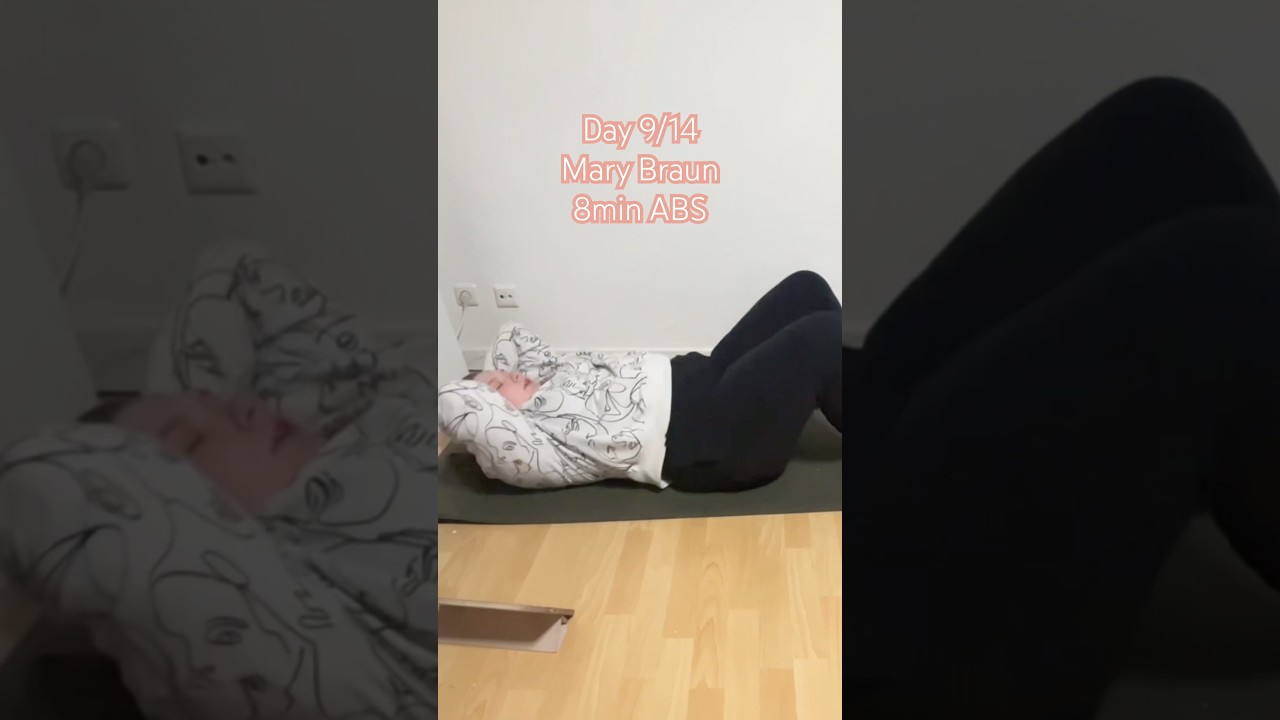
You must be logged in to post a comment Login